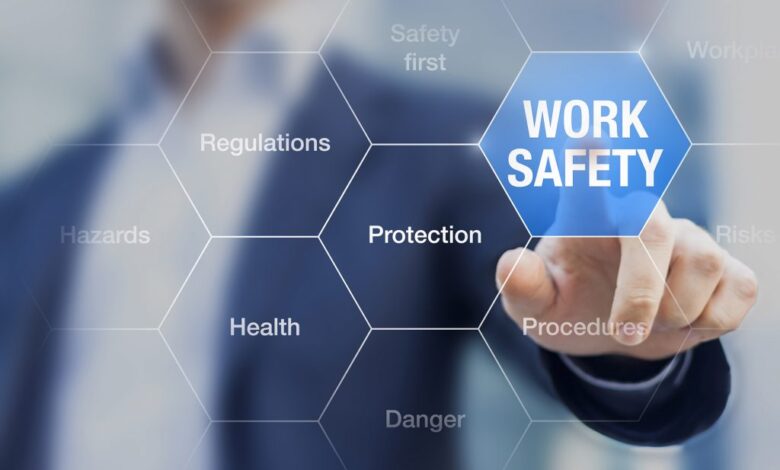How to Select a Suitable Health and Safety Consultant for Your Business

Selecting a suitable health and safety consultant can feel daunting in a crowded marketplace where every provider claims expertise. The wrong choice can expose your business to compliance failures, costly incidents, and reputational damage. This Risk Fluent Ltd article will provide you with insights to consider, so you can choose a consultant who delivers.
Why You Need the Right Health and Safety Consultant
When you bring in a consultant, you’re buying more than mere advice. You’re entrusting them with the well-being of your people and the compliance of your business. If you select poorly, the risks are significant. A consultant who cuts corners or fails to understand your industry could leave you exposed to enforcement action, civil claims, or workplace accidents. Beyond the immediate legal implications, reputational damage can be harder to repair than any fine.
Meanwhile, your consultant can become a strategic ally. They’ll help you navigate complex regulations, give your staff confidence, and reduce incidents through practical, workable solutions.
Qualifications and Accreditations to Look For
Accreditations are more than letters after someone’s name. They’re indicators of competence. You should look for qualifications such as NEBOSH or IOSH, which demonstrate a recognised level of technical knowledge. Occupational Safety and Health Consultants Register (OSHCR) membership also provides added assurance that you’re dealing with a verified professional.
Verification is straightforward. Ask for evidence of certificates, or check professional registers directly. It’s a simple step that can prevent future regret. Beyond generic credentials, think about whether you need a specialist.
A generalist consultant may suit an office environment. However, if you operate in construction or healthcare, a sector-specific expertise consultant will understand the nuances and risks far better.
Industry Experience and Specialisation
Experience is what translates theory into practice. A consultant may know the regulations inside out. Nevertheless, if they’ve never set foot in your industry, their recommendations may be impractical. A consultant who understands your sector will recognise the daily realities you face, whether it’s:
- Managing contractors on a construction site
- Handling patient safety in healthcare
- Addressing machine guarding in manufacturing
When you meet potential consultants, ask them about previous projects. What challenges did they face? How did they come up with solutions? Look for detailed, relevant examples rather than vague claims. Their ability to discuss real outcomes will tell you more than a polished sales pitch ever could.
Learn the Consultant’s Approach and Services
Be wary of consultants who arrive with a pre-packaged ‘solution.’ A credible consultant will begin with listening, understanding your operations, your workforce, and your priorities. From there, they may offer services such as audits, risk assessments, or customised training.
The distinction between proactive and reactive consultants quickly becomes apparent. A proactive consultant will anticipate issues, align safety strategy with business goals, and foster ownership among your teams.
Reactive consultants, by contrast, often only respond once problems arise. Another red flag is their lack of transparency, whether that’s hidden costs, unclear methodologies, or reluctance to share references.
Communication and Cultural Fit
A consultant’s technical expertise is wasted if they can’t communicate effectively. A consultant must engage confidently with your senior leaders while also connecting with frontline staff. If they rely on jargon or fail to inspire trust, their recommendations won’t stick.
Cultural fit is also essential. Safety is more about policies. It’s about people. Consultants who understand and respect your workplace culture will find it easier to embed changes and promote a positive safety mindset. Consider whether their style resonates with your team. Do they build rapport quickly? Do they make complex concepts accessible? These qualities often determine the success of their interventions more than the technical content alone.
Evaluating Costs and Value
It’s tempting to focus on price when selecting a consultant, but the cheapest rarely equates to the best. Consultants may charge hourly, daily, or project-based rates, and comparing these directly can be misleading. Instead, assess the value you’ll receive.
A strong consultant will identify efficiencies, reduce downtime from incidents, and lower the risk of costly claims or regulatory penalties. Seen in this light, consultancy is less a cost and more an investment. Ask yourself. What is the potential return on engaging someone who can prevent even a single major incident? The answer is rarely found in the lowest quote.
Checking References and Client Testimonials
Reputation is one of the clearest indicators of performance. Request references and take the time to follow them up. Ask previous clients how the consultant delivered value, how well they communicated, and whether they would re-engage them.
Testimonials on websites can be useful, but don’t rely on them alone. Speaking directly to a past client provides insight into the consultant’s day-to-day style and reliability. Online reviews may also help, though they can lack context. Trust your instinct when gathering feedback. If their responses feel hesitant or vague, treat it as a warning sign.
Practical Steps to Shortlist and Select a Suitable Health and Safety Consultant
Turning principles into action requires a structured process. Consider following these steps:
- Define your needs.
Be clear about what you want to achieve. Is it compliance, culture change, specific training, or a mix of these?
- Research qualified consultants.
Use professional registers, industry recommendations, and credible networks.
- Request proposals.
Ask shortlisted consultants to outline their approach, experience, and indicative costs.
- Compare fairly.
Look beyond cost to assess quality, cultural fit, and evidence of past results.
- Conduct interviews or trials.
Meeting face-to-face or running a pilot project can reveal far more than brochures or websites ever will.
A practical checklist may include confirming qualifications, checking sector experience, reviewing proposed methods, assessing communication style, and clarifying costs upfront. You can break this process into manageable steps. This helps you reduce the risk of being swayed by marketing gloss or pressured into hasty decisions.
Conclusion
Selecting a suitable health and safety consultant is about more than compliance. It’s about protecting your people, safeguarding your reputation, and aligning safety with business success. Due diligence at this stage pays you dividends in the long run. A consultant who understands your industry, communicates effectively, and provides solutions can transform safety from a regulatory burden into an advantage.




